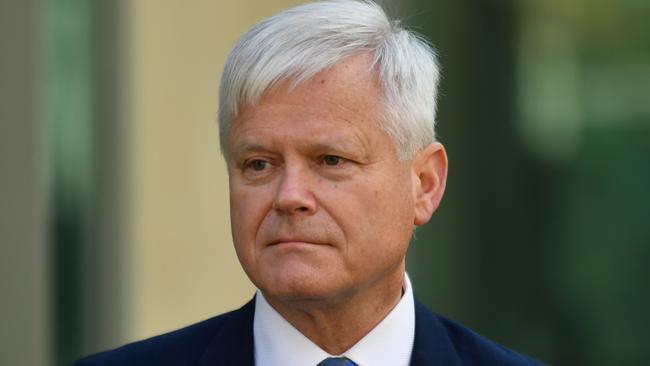It’s ‘raining money for punters’
Scott Morrison’s $300 billion pre-election tax cut for low- and middle-income workers gives back more than $2000 to couples.

The $300 billion pre-election tax cut for low- and middle-income workers will hand back more than $2000 for couples to ease the tax burden but also boost spending to stimulate the economy.
Josh Frydenberg has expanded the Coalition’s $144bn, 10-year, tax-cut plan, announcing $158bn worth of income tax relief measures, which he hailed as the “largest personal income tax cuts since the Howard government”.
The proposal will double the maximum low- and middle-income tax offset for workers from $530 a year to $1080, equal to $2160 for couples, in just 13 weeks’ time. The tax cuts could potentially result in an extra $3.5bn flooding the economy just after the expected May federal election.
With the Treasurer aiming to wedge Labor into support for the income tax package, which is geared to pour stimulus into a stagnating economy amid falling house prices, the base tax offset will now extend to $255, gifting workers on less than $37,000 a year an equal benefit to their take-home pay.
For workers earning between $48,000 and $90,000, the tax offset will increase with every dollar earned to a maximum benefit of $1080 a year, from July 1 after tax returns are lodged.
Workers earning up to $126,000 will also benefit from the plan, with more than 10 million workers getting a benefit, and 4.5 million receiving the full benefit. “This is money that could go towards your monthly mortgage payment, your quarterly power bill or your yearly car insurance,” Mr Frydenberg said.
The Morrison government is also aiming to cut the marginal tax rate for workers earning up to $87,000 from 32.5 per cent to 30 per cent.
That is in addition to last year’s tax cut measure to abolish the 37 per cent marginal rate for workers earning up to $180,000 in favour of the current 32.5 per cent rate. That would mean 70 per cent of taxpayers would be in the same tax bracket.
A measure scheduled for 2022 would lift the salary taxed at a 19 per cent marginal rate from $41,000 to $45,000.
With these changes, 94 per cent of taxpayers would pay a marginal tax rate of 30 per cent or less. “This tax relief will lift household incomes, ease cost-of-living pressures and boost spending at local businesses,” the Treasurer said.
Deloitte Access Economics’ Chris Richardson said the tax plan had the hallmark of a “Gerry Harvey” budget.
“A very large number of households will get a week’s worth of money in their pockets. The punters have not factored this in,” Mr Richardson said.
He said if the measure were also adopted by Labor, it would mean an incoming government would come to power as it was “raining money” for consumers.
Economists have been concerned that faltering economic growth, which almost stalled in the December quarter, could worsen amid falling house prices, a squeeze on credit in the banking system, and the impact of droughts and floods. Last month’s national accounts revealed that income on a per-capita basis went backwards over the past two quarters.
Labor has put pressure on the Coalition to match its own more generous income tax plan, and the Morrison government will now go to the election holding out the prospect of an immediate tax refund injection for families.



To join the conversation, please log in. Don't have an account? Register
Join the conversation, you are commenting as Logout